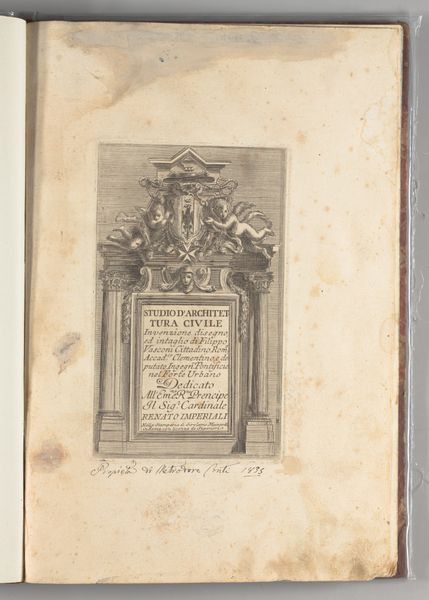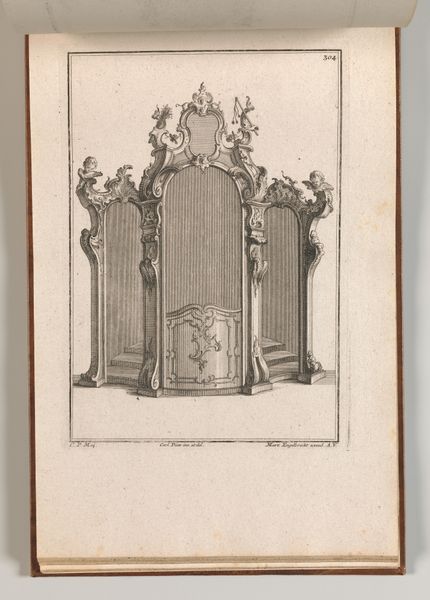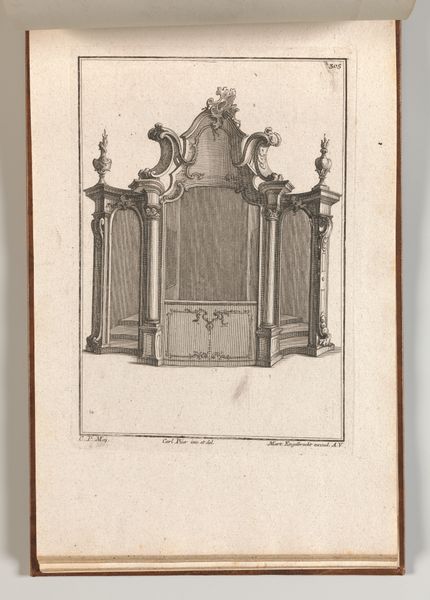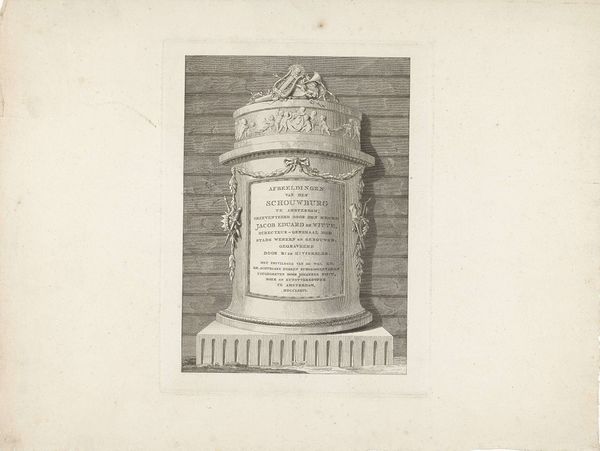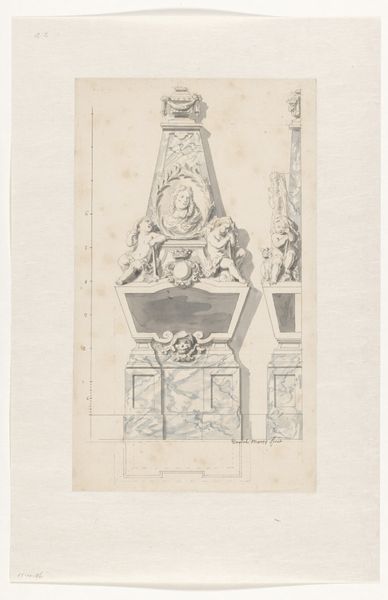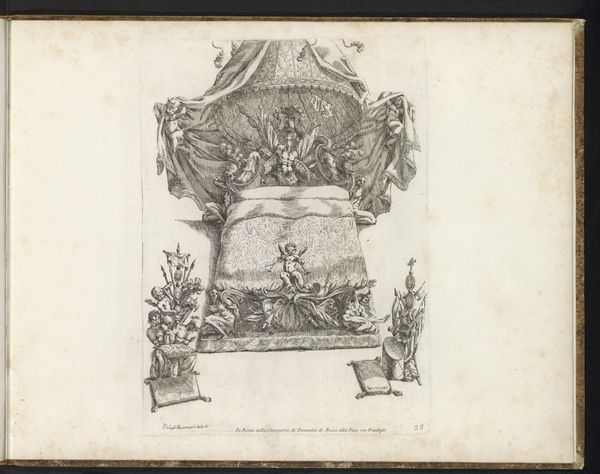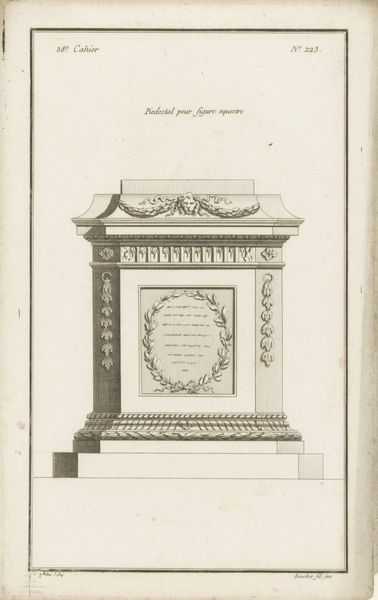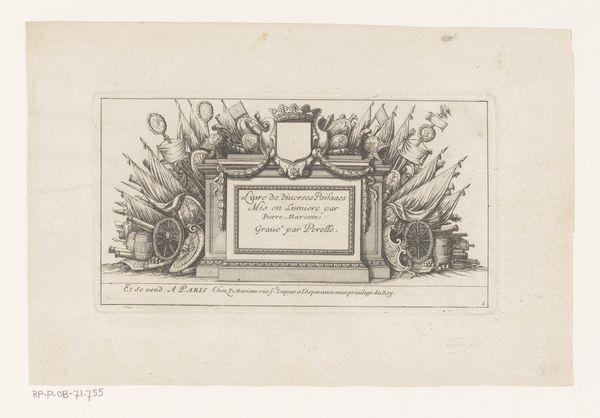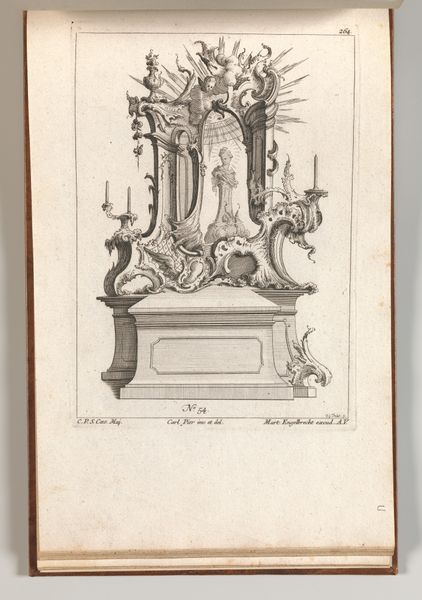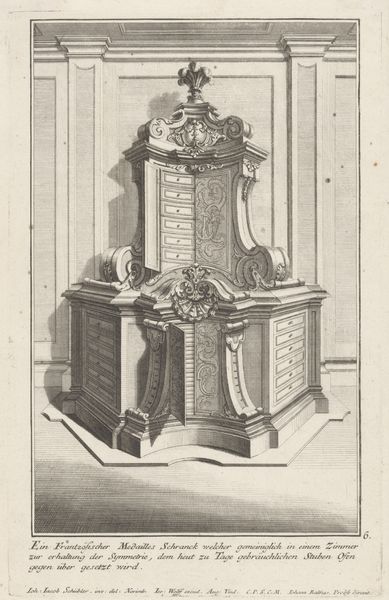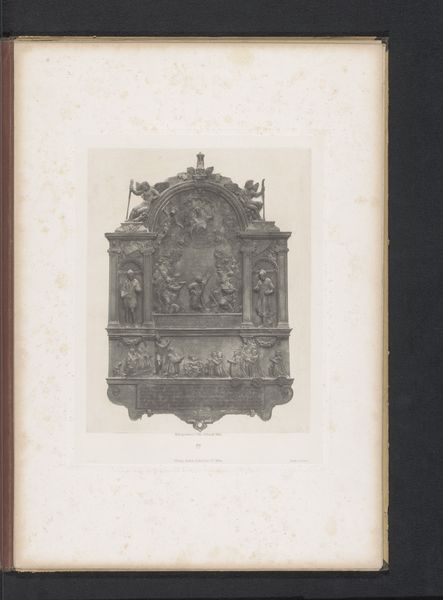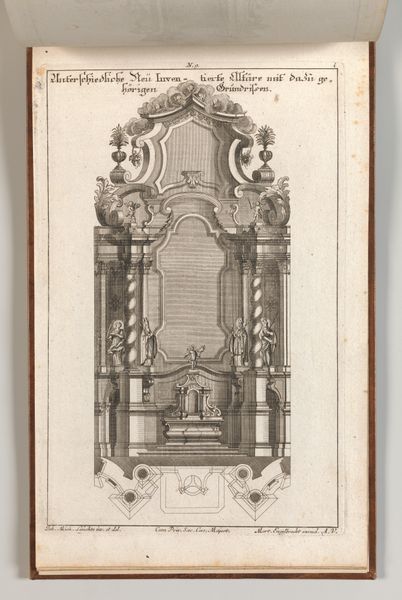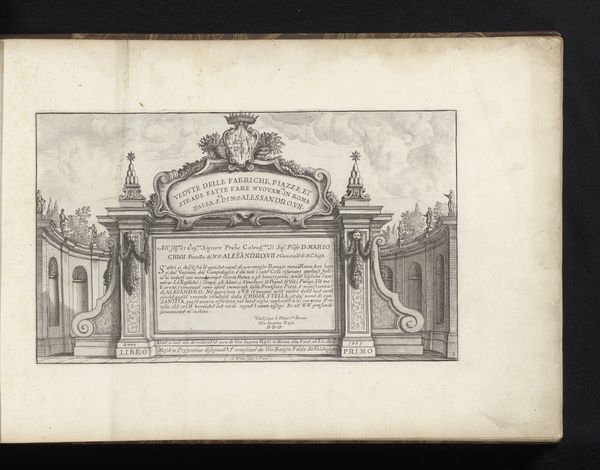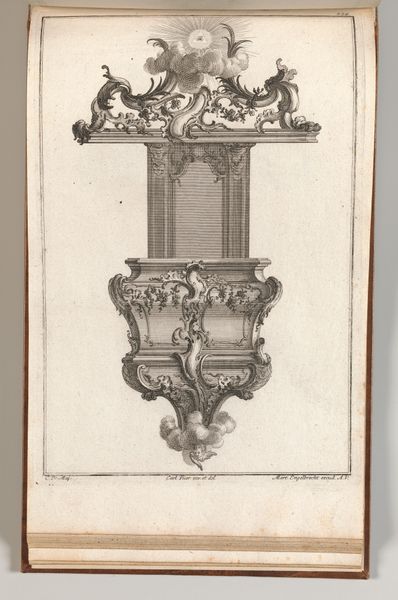
Grafmonument voor kapitein Cornelis Jansz de Haen in de Oude Kerk te Amsterdam c. 1680 - 1720
0:00
0:00
print, metal, engraving, architecture
#
baroque
# print
#
metal
#
line
#
history-painting
#
engraving
#
architecture
Dimensions: height 138 mm, width 84 mm
Copyright: Rijks Museum: Open Domain
This print depicts the tomb of Captain Cornelis Jansz de Haen in Amsterdam’s Oude Kerk, showcasing potent symbols of mortality and valor. The skull at the base speaks of death's inevitability, while the naval battle scene and rooster crest above honor the captain's bravery and vigilance. Consider the skull, a memento mori, which appears not only in Dutch art but echoes through time. From ancient Roman mosaics to vanitas paintings, it serves as a stark reminder of life's fleeting nature. The rooster, a symbol of watchfulness, also transcends epochs, harking back to ancient Greece, where it symbolized dawn and awakening. Note how these symbols interact. The skull's grimness is tempered by the rooster's promise of a new day. This interplay taps into a collective memory, a shared understanding of life's dualities. It is a testament to our capacity to confront mortality while celebrating human achievement. The emotional power lies in their ability to provoke contemplation, engaging viewers on a subconscious level, reminding us of the cyclical nature of life and death.
Comments
No comments
Be the first to comment and join the conversation on the ultimate creative platform.
